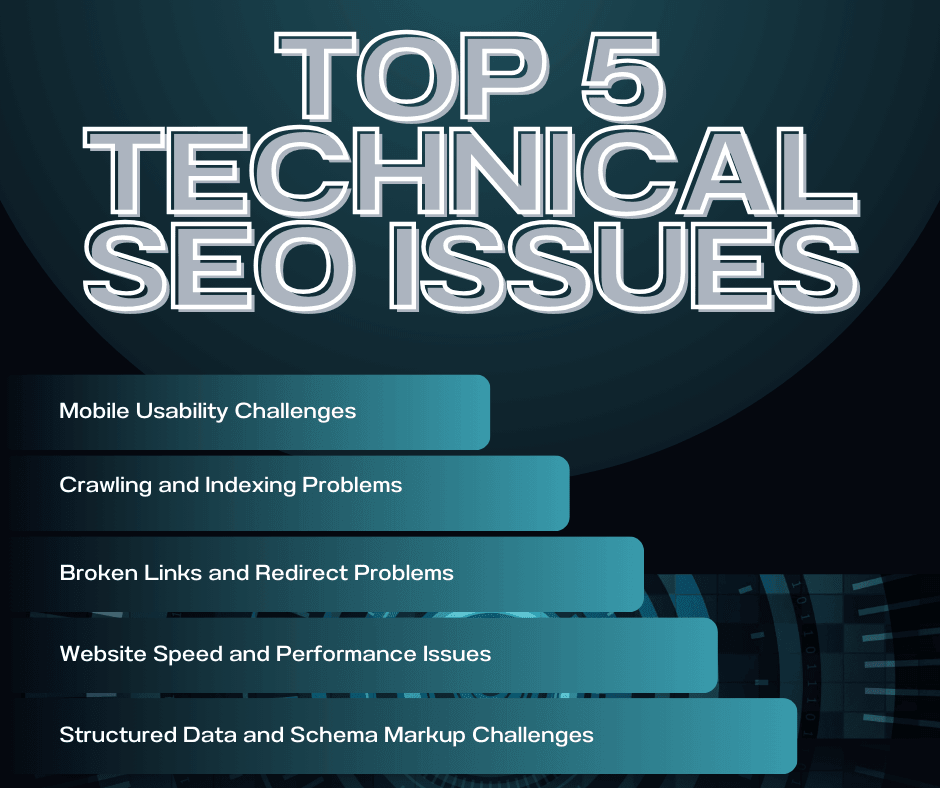- Website Speed: Critical for Travel Booking Conversions
- Factors Slowing Down Travel Websites
- Improving Speed for Travel Sites
- Crawling and Indexing Challenges for Location-Based Services
- Common Problems Affecting Travel Site Visibility
- Solutions for Multi-Location Travel Businesses
- Mobile Optimization: Capturing Travelers on the Go
- Mobile Usability Issues Hurting Travel Sites
- Mobile Optimization Strategies
- Broken Links and Redirect Issues in Travel Content
- Common Link Problems
- Maintaining Healthy Link Structures
- Structured Data for Enhanced Travel Search Results
- Schema Markup Best Practices for Travel
- The Value of Regular Technical SEO Audits
Search engines prioritize optimized travel sites that load quickly, display correctly across all devices, and provide seamless booking experiences. However, many travel websites struggle with technical issues that prevent potential customers from finding their services, resulting in lost bookings and decreased revenue. Addressing these challenges is essential for capturing travelers’ attention during critical planning moments and converting searches into sales.
Understanding and resolving technical SEO issues requires specialized expertise, particularly in the travel industry, where user behavior differs significantly from other sectors. Travelers often search on mobile devices while on the move, compare multiple options simultaneously, and expect instant page loads when making time-sensitive decisions. From slow-loading destination pages to improper indexing of location-specific content, various technical factors can severely impact search rankings and booking rates.
To handle these complex challenges, many successful travel companies partner with SeoProfy, an SEO company that specializes in optimizing travel and hospitality websites for maximum visibility and conversion performance. By fixing technical problems systematically, travel businesses ensure that potential customers can easily discover their services at the exact moment they’re planning trips, comparing options, or ready to book.
Website Speed: Critical for Travel Booking Conversions
Page speed is particularly crucial for travel websites, where users frequently abandon slow-loading sites in favor of faster competitors. Travel shoppers are extremely impatient, with conversion rates dropping significantly for every second of delay. When potential customers are comparing luggage storage options, searching for accommodation, or booking experiences, even minor delays can send them directly to competitors.
Factors Slowing Down Travel Websites
- Unoptimized destination images: High-resolution photos of locations, accommodations, and services are essential for travel sites, but large image files dramatically slow loading times, increasing bounce rates precisely when travelers are evaluating multiple options simultaneously.
- Map and booking widget scripts: Interactive maps, availability calendars, and booking engines often require numerous external scripts that create excessive HTTP requests. This significantly delays page rendering and frustrates users searching for quick information.
- Lack of browser caching: Travel sites with frequently returning visitors suffer when caching isn’t implemented properly. Users checking availability across multiple dates or comparing different locations must reload all elements repeatedly.
- Render-blocking resources: Complex booking systems, review widgets, and dynamic pricing tools often contain JavaScript and CSS that prevent content from displaying quickly. They cause travelers to leave before they even see your offerings.
Improving Speed for Travel Sites
- Compress destination and service images using modern formats like WebP while maintaining visual quality
- Implement lazy loading for images and maps that appear below the fold
- Enable aggressive browser caching for static assets, including location photos and interface elements
- Defer non-critical JavaScript for booking widgets and analytics until after initial content loads
- Use content delivery networks (CDNs) to serve images and resources from geographically closer servers to global travelers.
Crawling and Indexing Challenges for Location-Based Services
Travel businesses offering services across multiple locations face unique indexing challenges. When search engines cannot properly crawl and index location-specific pages, entire cities or neighborhoods may become invisible in search results, directly impacting bookings from those areas. Professional SEO services for the travel industry specialize in resolving these complex multi-location indexing issues that are common across the hospitality and travel sectors.
Common Problems Affecting Travel Site Visibility
- Blocked location pages in robots.txt: Many travel websites accidentally block important city-specific or venue pages in their robots.txt configuration. This prevents search engines from discovering services in specific destinations and eliminates valuable location-based traffic.
- Incorrect noindex tags: Travel sites sometimes mistakenly apply noindex tags to seasonal content, location pages, or service categories during testing phases, causing these critical booking pages to disappear from search results entirely.
- Orphan service pages: Location-specific pages for luggage storage, tours, or accommodations without proper internal linking become invisible to both search engines and potential customers searching for services in those specific areas.
Solutions for Multi-Location Travel Businesses
- Conduct comprehensive robots.txt audits to ensure all location and service pages remain accessible to search crawlers
- Implement regular checks for noindex tags across seasonal and location-based content
- Create robust internal linking structures connecting location pages to relevant destination guides and service categories.

Mobile Optimization: Capturing Travelers on the Go
Mobile optimization is non-negotiable for travel businesses, as the majority of travel research and bookings now occur on smartphones and tablets. Travelers search for services while walking through airports, exploring new cities, or making last-minute plans. Poor mobile performance directly translates to lost bookings and revenue.
Mobile Usability Issues Hurting Travel Sites
- Unresponsive booking interfaces: Reservation forms and availability calendars that don’t adapt properly to mobile screens create frustrating experiences that send potential customers to competitors with better mobile functionality.
- Tiny tap targets: Small buttons for selecting dates, locations, or booking options make mobile navigation nearly impossible, especially for travelers trying to book quickly while on the move.
- Intrusive mobile pop-ups: Aggressive subscription requests, cookie banners, or promotional overlays that block booking information drive mobile users away before they can complete reservations.
- Slow mobile loading: Travel pages packed with images, reviews, and booking widgets often load painfully slowly on mobile networks, causing travelers to abandon sites before seeing available services.
Mobile Optimization Strategies
- Implement a fully responsive design that prioritizes booking functionality across all device sizes
- Design large, easily tappable buttons for critical actions like “Check Availability” and “Book Now”
- Minimize pop-up interruptions and ensure any necessary notices can be easily dismissed
- Optimize mobile loading speed through image compression, simplified booking flows, and accelerated mobile pages (AMP) for critical content.
Broken Links and Redirect Issues in Travel Content
Travel websites frequently update service offerings, add new locations, and modify seasonal content, creating numerous opportunities for broken links and redirect problems. These technical errors damage user experience and harm search rankings, particularly problematic when travelers are trying to access specific location information or booking pages.
Common Link Problems
- Broken location and service links: When travelers click on non-functional links to specific cities, venues, or services, encountering 404 errors destroys trust and sends them to competitors.
- Redirect chains: Multiple sequential redirects between old location pages and new ones slow site performance and waste valuable “crawl budget” that search engines allocate to your site.
- Missing redirects for discontinued services: Old URLs for seasonal services or former locations without proper redirection create dead ends that frustrate users and harm SEO.
Maintaining Healthy Link Structures
- Perform monthly link audits to identify and fix broken internal and external links
- Implement direct 301 redirects from old location or service pages to current equivalents
- Create redirect maps when restructuring location-based content or changing URL structures
- Monitor external links to partners, venues, and third-party booking platforms.
Structured Data for Enhanced Travel Search Results
Structured data implementation helps travel businesses stand out in search results with rich snippets showing ratings, pricing, availability, and location information. Proper schema markup can significantly increase click-through rates from search results pages, but errors in implementation prevent these visibility advantages.
Schema Markup Best Practices for Travel
- Implement appropriate schema types: LocalBusiness for physical locations, Service for offerings, Review for customer testimonials
- Use structured data testing tools to validate all markup before deployment
- Include critical information: addresses, operating hours, service areas, pricing ranges
- Update schema markup when adding new locations or modifying services
- Avoid duplicate or conflicting schema implementations across pages.

The Value of Regular Technical SEO Audits
Successful travel businesses maintain competitive visibility through systematic technical SEO audits that identify issues before they impact bookings. Regular audits should include crawling analysis, speed testing, mobile usability evaluation, link validation, and structured data verification. By maintaining technically sound websites optimized for how travelers search and book, travel businesses achieve sustained growth and maximize their return on marketing investments.





